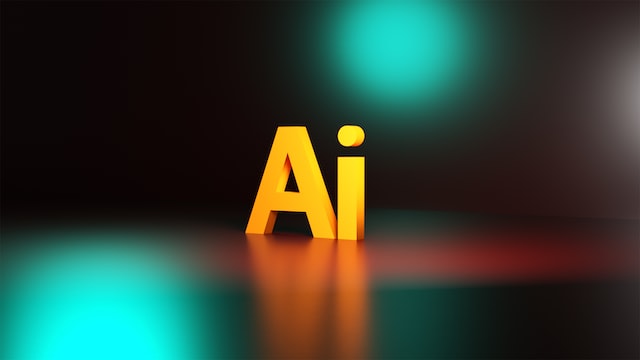Software quality assurance is often viewed as a costly prerequisite for any development team; testing is cost-intensive in terms of cash and labor and is still an imperfect process susceptible to human error. Incorporating artificial intelligence and machine learning into the testing process expands the range of what can be tested and automates a significant portion of the testing process. Keep reading to understand how AI is helpful for Quality Assurance (QA).
1. Aids Developers in Producing Error-free Software
Software development is one of the sectors in which AI is demonstrating its value for quality assurance. AI appears well-appropriate for regression testing. This method ensures that previously tested software versions continue functioning as expected after code updates. Or, AI could assist in the creation of new test cases. Some AI models may recognize or generate scenarios without being exposed beforehand.
If you’re considering adopting AI for testing assistance, you should determine which processes take humans the most time or where they make the most mistakes. Then, evaluate if AI in quality assurance could prevent these problems and accelerate the processes testers generally take to ensure that new software is functioning properly. Keep in mind that utilizing AI for software testing is most effective with a huge data collection. Training your AI models is essential and should not be taken lightly.
2. Limits the Occurrence of Foodborne Illnesses
According to data from the Centers for Disease Control and Prevention of the United States, foodborne infections sicken 48 million Americans annually and send over 100,000 to the hospital. To prevent oversights that could lead to food poisoning and recalls, manufacturers of consumable goods must adhere to stringent practices in their facilities.
A Google team collaborated with Harvard researchers to develop an artificial intelligence algorithm that can supposedly detect potential food safety hazards in near real-time. It examines Google search queries from users whose location data is enabled. For instance, if a user searched for terms associated with food poisoning, such as “causes for diarrhea,” the AI would collect location data to determine which restaurants the user had previously visited. Then, health departments received lists of potential problem establishments, and inspections were launched to know the truth.
Even though it was only employed in a few cities, Google’s artificial intelligence was superior to its predecessor at identifying food safety issues in restaurants. Specifically, the AI model identified dangerous restaurants 52.1% of the time, compared to 39.4% when complaints were the main approach.
Your organization typically lacks the resources of Harvard and Google. However, you should still find AI useful. Some technologies track social media sentiment analysis. Regardless of what you sell, you must investigate if you observe a sudden influx of negative comments overnight or within a few hours.
3. Allows Humans to Concentrate on Other Activities
At many businesses, quality assurance is merely one of a person’s daily responsibilities. For instance, journalists have a variety of responsibilities that contribute to quality assurance. When writing content, they must verify their sources, adhere to their organization’s style guide, and check for typos and grammatical issues.
Some individuals feel AI is crucial in allowing journalists and editors to devote more time to other aspects of their workflow, such as investigating a story and searching for additional interviewees. The argument is that AI is not eliminating jobs but enhancing how people work and allowing them to concentrate more on roles that technology cannot perform.
If you believe AI could help your QA objectives by doing some of the time-intensive duties performed by humans in your organization, seek out solutions that are purposeful and easy to use. Additionally, it is beneficial to utilize measurements demonstrating the AI’s ability to save people time without sacrificing quality.
4. Identifies Flaws Before Items Reach the Marketplace
Tighter markets and worldwide rivalry have prompted manufacturers to prioritize quality assurance more than ever. A corporation that excels in quality assurance keeps its consumers delighted by delivering on its promises. Typically, they integrate QA into every element of their business. It is simple to imagine how costly QA issues could become in the industrial industry if not addressed. Countless automakers utilize the Industrial Internet of Things sensors for AI and quality control. The sensors collect data, which is then analyzed by AI systems to identify potential problems.
The greatest reward of this approach is that manufacturers can detect problems sooner. Then, they may significantly reduce the possibility that automobiles with defective parts will roll off the assembly line and be sold to customers. Evaluate whether other innovations, like sensors or extensive data interfaces, could enable your organization to discover where and why product failures occur when it seeks to reduce the number of product defects. Thus, it should be simpler to identify the holes in your QA process and choose how to address them.
5. Improves and Individualizes Medical Care
Executives at medical facilities analyze various statistics to track patient outcomes and identify issues that may result in bad medical care. For instance, they may examine hospital readmission rates, the average length of a hospital stay, the number of times people wait to be seen in emergency rooms, etc.
These measurements determine how a facility’s quality compares to its competitors. Flagler Hospital in Florida employs AI tools to aid in treating patients with high-mortality illnesses. The technology reduces hospital expenditures and lengths of stay. For instance, the technology can save over $1,300 in direct variable expenses and shorten the length of stay for pneumonia patients by two days. Using a similar strategy, you may determine whether AI could improve time- or cost-based data. Always maintain a high level of comprehension, even when other measurements fall.
6. Offers Improved Educational Results
Training personnel also relates to quality assurance. National University of Singapore researchers have developed a program that employs artificial intelligence to personalize training content for each user. The underlying emphasis is that this practice increases cognition more than other training methods. AI technology demonstrated, among other things, that individuals respond differently to training intensity, and a personalized strategy may improve comprehension. You should leverage AI and quality assurance for training by keeping track of the modules individuals have previously covered and how they reacted to various information delivery formats, such as video and audio.
Final Thoughts
Quality assurance helps your firm succeed. If you make quality assurance a consistent focus in your business, you should be able to avoid severe complications that could damage your reputation. Utilizing AI after collecting ideas from this article should help you save time and other resources while improving output quality.







